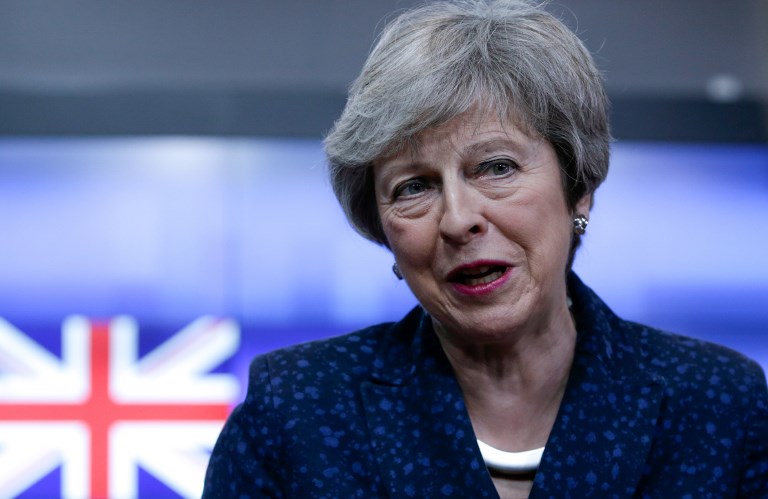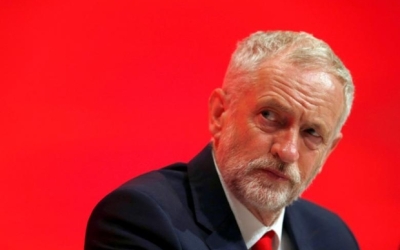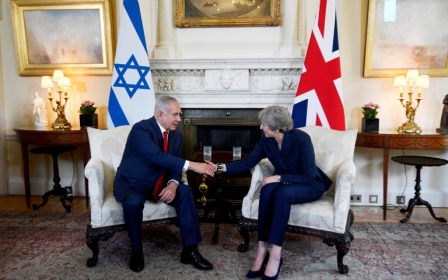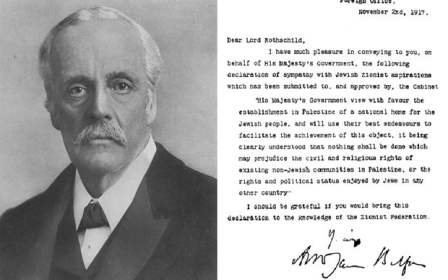Britain has much to apologise for in Palestine

Britain’s colonial past has left its mark in many parts of the world. But most of the peoples it ruled gained their independence after Britain left - except for the Palestinians.
Instead, Britain promised their homeland to the Zionist movement through the 1917 Balfour Declaration, even before its occupation of historic Palestine. Britain did so without consulting them, indeed, against their will. But to this day, Britain refuses to apologise for its role in the ongoing predicament of Palestinians.
The disdain that Britain had for Palestinians then was there for all to see in the declaration itself, which promised: “His Majesty’s Government view with favour the establishment in Palestine of a national home for the Jewish people, and will use their best endeavours to facilitate the achievement of this object.” There was no “leave it with us to discuss this with the people who inhabit the land now”. On the contrary, Palestinians were not even mentioned by name.
Expansionist policies
The declaration went on to qualify its support, noting that “nothing shall be done which may prejudice the civil and religious rights of existing non-Jewish communities in Palestine, or the rights and political status enjoyed by Jews in any other country”.
Stay informed with MEE's newsletters
Sign up to get the latest alerts, insights and analysis, starting with Turkey Unpacked
The declaration did not even recognise that at the time, “non-Jewish communities” made up around 90 percent of the population. Britain saw the indigenous Palestinians as unworthy of the same rights as Jews who had yet to arrive.
Palestinians thought the centenary of the Balfour Declaration would be an opportunity for Britain to atone for its sin ... but Britain was in no mood to apologise
When Britain left Palestine in 1948, it was not the indigenous people of the land, Palestinian Arabs, who announced their independence, but rather foreigners who had taken the land through terror and the expulsion of more than 700,000 Palestinians into neighbouring countries.
While Israel was created on far more of the land (78 percent) than even the overly generous UN Partition Plan allocated to Jews, it now controls the whole of historic Palestine after its occupation of the West Bank, East Jerusalem and Gaza in 1967 and its expansionist policies. It controls all points of entry and exit, and has ushered in more than 700,000 settlers to the occupied territories, through what many believe are a series of war crimes.
Palestinians thought the centenary of the Balfour Declaration would be an opportunity for Britain to atone for its sin and apologise to Palestinians for promising their land away, while not helping them to attain their rights - but Britain was in no mood to apologise.
Marking Balfour ‘with pride’
Speaking at a Conservative Friends of Israel luncheon prior to the centenary, British Prime Minster Theresa May said it was “an anniversary we will be marking with pride”. There was only the briefest mention of Palestinians: “Of course, people are correct when they say that securing the rights of Palestinians and Palestinian statehood have not yet been achieved.”
Palestinian President Mahmoud Abbas sought an apology and even threatened to sue Britain for the declaration, which he characterised as an “ill-omened promise“ based on which “hundreds of thousands of Jews were moved from Europe and elsewhere to Palestine at the expense of our Palestinian people, whose parents and grandparents had lived for thousands of years on the soil of their homeland.” In the end, it was an empty threat.
In fact, Britain celebrated the centenary with a visit by Israeli Prime Minister Benjamin Netanyahu, which it claimed was a commemoration and not a celebration.
When the question of an apology for Balfour is raised with British government representatives, the answer usually is that if Britain apologises for this, then where would it stop, considering its colonial history?
If this rationale is acceptable - and Palestinians do not accept it - then it must be applied consistently. But this is not the case: Britain recently issued an apology of sorts to Jews, with Foreign Secretary Jeremy Hunt noting: “There have been some black moments when we have done the wrong thing, such as the 1939 White Paper, which capped the number of visas issued to Jews wanting to go to the British mandate of Palestine.”
Empty criticism
How is it that Britain refuses to apologise for the dispossession of Palestinians and their continuing suffering because of its promise to Zionists, while effectively apologising for limiting the number of visas to Jews into Palestine? Britain claims to be a friend of Israel and acts as a friend, but it has never declared itself a friend of the Palestinian people. Why not?
It wants to see Israel thrive and will do what it can to protect it from accountability in international forums, including the UN Human Rights Council. The most it will do is criticise Israel’s policies, but take no meaningful action to pressure it, as seen through its statements on settlements. Britain has invested heavily in growing trade between the two countries, without conditioning this on Israel ending its habitual breaking of international law.
Britain rushed to agree on a trade deal with Israel, which International Trade Secretary Liam Fox announced at the World Economic Forum in Davos: “As Britain prepares to leave the European Union and to ensure continuity for our businesses in both directions, we’ve reached agreement in principle … with our colleagues in Israel.” The UK currently shares a £10 billion ($12bn) trade relationship with Israel.
There was no mention of conditioning this on a halt to continued illegal settlement-building, home demolitions, killings of peaceful protesters or the enactment of the racist nation-state law. Minister after minister declares that Israel has an unreserved right to self-defence, but none have condemned it for murdering medic Razan al-Najjar or journalist Yaser Murtaja at the Gaza fence.
Abandoning Palestinians
Not only did Britain abandon Palestinians to face the terror of Zionism in 1948, it continues to befriend the state that oppresses them, which has declared itself an apartheid state through its policies and the passing of the nation-state law.
It is also time [Britain] acted to pressure its 'friend and ally' into ending its criminal rule over Palestinians
There is little action to help Palestinians attain their inalienable rights. If Britain sees Palestinians and Jewish Israelis as equal human beings, why does it continue to proudly support the former while shying away from support for the latter?
Britain has a lot to apologise for when it comes to the Palestinian people - but it is also time it acted to pressure its “friend and ally” into ending its criminal rule over Palestinians.
The views expressed in this article belong to the author and do not necessarily reflect the editorial policy of Middle East Eye.
Middle East Eye delivers independent and unrivalled coverage and analysis of the Middle East, North Africa and beyond. To learn more about republishing this content and the associated fees, please fill out this form. More about MEE can be found here.







